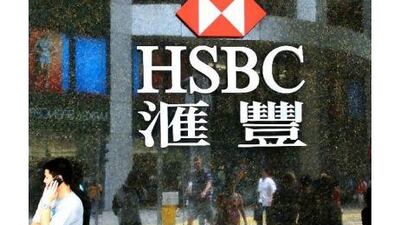The environment in which bankers have spent most, if not all, of their careers has changed dramatically.
The impact of the global financial crisis on the banking sector is still being examined against a background of weaker economic growth in the West combined with the rise of emerging market powerhouses such as China.
Based on PricewaterhouseCoopers's (PwC) extensive experience of working with banks around the world, we recently conducted an in-depth review of the knowns and unknowns that are likely to shape the evolution of the banking market in the decade to come.
Scenarios range from a potential status quo on the one hand to a complete new world order on the other. In the least likely scenario, it could be business as usual, whereby western banks would continue their existing course and the West would remain central to decision-making and economic power in global banking.
But in the case of a new world order - and our research shows it is heading in that direction - the emerging markets would become a self-sufficient bloc, while western banks would struggle to remain relevant.
Banks from emerging markets would be able to enter the West freely and do so aggressively, while their western counterparts would be locked out of the major emerging growth markets.
Opinion may still be divided and even often diametrically opposed, but discussing the results of the PwC research will provide decision-makers with facts and fresh insights to enable them to seize opportunities and identify the threats their organisations face in the changing banking landscape.
What is certain today is that there is a rupture between the future and the past, and that there are multiple drivers at work that will shape the industry.
In the 20 years preceding the financial crisis, banks became increasingly large and complex.
This trend became especially apparent as bank assets worldwide grew disproportionately compared with GDP growth in their respective domestic markets.
In Europe, nominal GDP rose 5.9 per cent per year on average between 1980 and 2007, while the continent's bank assets surged 19 per cent per year on average during the same period.
It was the rise of the universal banking model, whereby lenders tried to achieve economies of scale and scope, and as deregulation became the name of the game, that helped create an asset bubble and trigger a debt explosion.
During that era, western banks such as Citigroup and HSBC no longer operated only in their home markets but spanned the globe and dominated international banking.
While it is impossible to know for sure what the banking landscape will look like in 10 years, there are several factors that play a vital role in shaping the banks of the future and provide a sense of direction.
First, GDP growth in the West will be more subdued after 30 years of sustained growth.
Following the global crisis, western nations now face weaker economic prospects, characterised by high unemployment, austerity measures and hefty refinancing needs.
In addition, the western financial sector, after continuously outperforming the economy as a whole, is now expected to expand at the same or a slower pace. Third, emerging markets could implement lockdown on western banks seeking to do business in those economies and even challenge those financial institutions on their own turf.
Meanwhile, within the banking industry itself, the focus is on three key areas: regulation; the rapidly changing external environment; and the issue of internal controls.
In terms of regulation, the threat of a break-up of universal banks still looms.
Banks are also under pressure as capital and liquidity requirements become more stringent. Furthermore, regulators are also attempting to impose more regulation on the so-called shadow banking industry, for instance hedge funds and investment banks, which were considered by some as partly responsible for the financial crisis. Last but not least, banks will have to implement Basel III, posing further challenges.
The background against which banks operate continues to be challenging. Economic uncertainty persists and China continues to cement its position as a global economic powerhouse. There is also uncertainty about what will happen with the interests many governments took in their domestic banks to protect them during the financial crisis.
Banks will also have to assume a more introspective look by considering pay and reward systems, which also came under scrutiny during the financial crisis. In addition, there is more emphasis on risk, corporate governance and control - all areas to which banks must respond while reducing their complexity.
As a new world order of financial institutions emerges, far-reaching structural change will be the logical result arising from the need to deleverage. European economies and banks also face the prospect of a sustained period of weaker or stagnant growth because of increasing fiscal pressure and the interconnectedness of sovereign debt and bank risk.
Regulation will change the way banks do business and continue to consume large portions of management time and energy.
Banks will not be able to regain shareholder trust without fundamentally changing the way they operate and market themselves.
Adopting new technology and updating old systems will inevitably weigh on earnings.
Top talent will migrate to the emerging markets, while at the same time the existing banking workforce in the West is ageing. In the short term, there are additional factors that could disrupt the industry: fiscal pressure and trying to regain the trust of stakeholders.
Governments will increasingly perceive banks differently, perhaps more as social utilities that must provide services for unbanked and possibly less profitable customers.
Let's not forget the demographic trends of ageing populations in the West, which mean that those markets bear lower growth potential.
Banks that are prepared for all these catalysts of change are undoubtedly in a better position to get ahead of the curve and will be able to survive, and even thrive, in a new world order of banking.
Ron McMillan is the deputy chairman and head of assurance for PricewaterhouseCoopers in the Middle East

